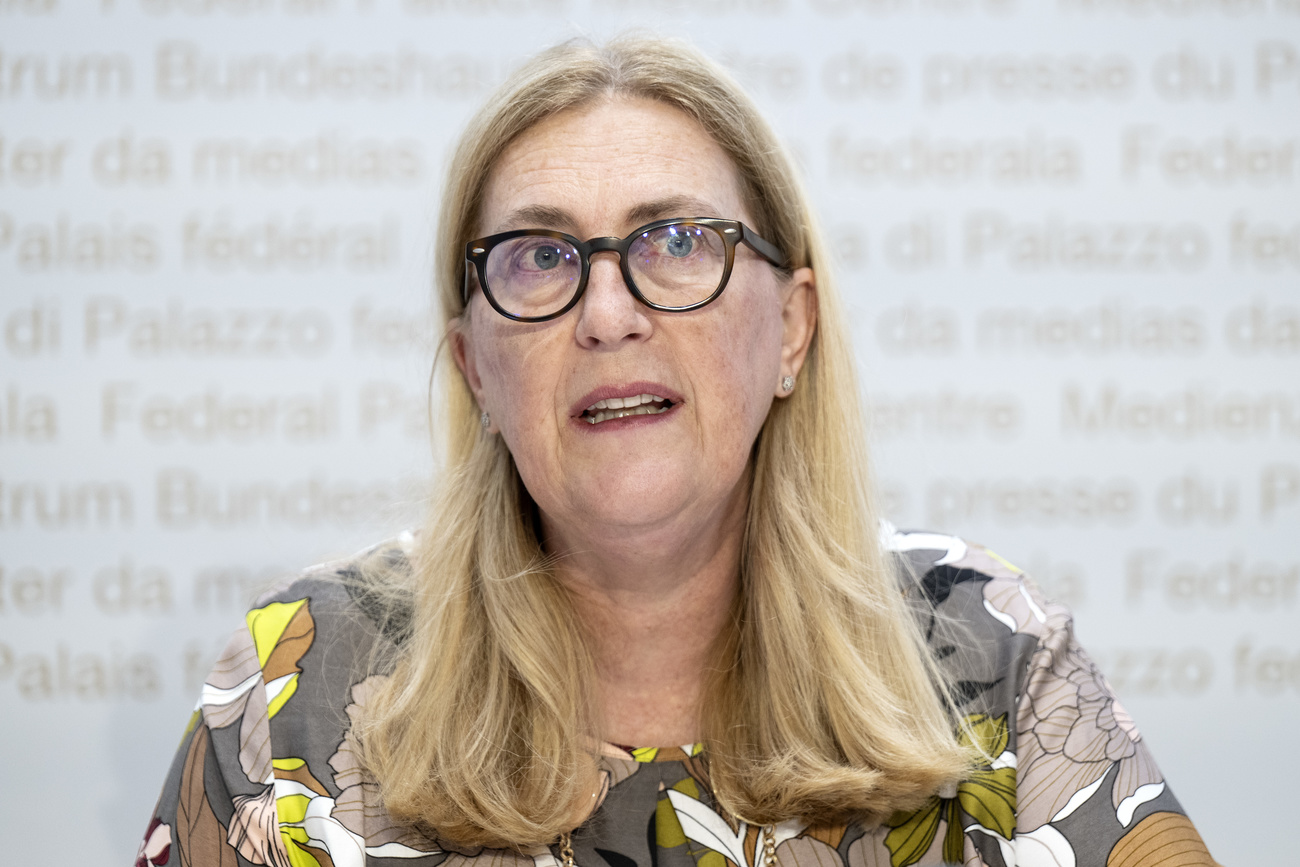Swiss State Secretary warns against cutting development aid

Helene Budliger, head of the State Secretariat for Economic Affairs (SECO), warned of the negative consequences of the plan to divert funds from development aid to invest in the army.
The Swiss senate wants to cut CHF500 million ($557 million) a year from development aid and use it for the army instead. This scenario worries Budliger, who told Swiss public television SRF in the Saturday Review: “Then we would need to have a real discussion about Switzerland’s global solidarity.”
As head of SECO, Budliger is responsible for economic development aid. She warns that further cuts could have a negative impact: “Development cooperation gives us a good reputation and helps us in other areas. It would be a shame to jeopardise that carelessly.”
+ Majority of Swiss do not support an increase in defence spending
Leading members of the Senate justified their decision in June by arguing, among other things, that some aid projects were not very effective. Additionally, development aid has received increasing amounts of money in recent years. The House of Representatives is expected to make its decision in September. Budliger trusts that it will find a justifiable solution. After all, Switzerland is “not a country of extremes,” she said.
Ukraine aid
However, Budliger defends one of the Swiss government’s decisions regarding aid to Ukraine against all criticism: one third of Swiss reconstruction aid is earmarked primarily for Swiss companies that are still active in Ukraine. These include companies such as the glass manufacturer Glas Trösch and Geberit, a manufacturer of sanitary products, which continue to operate factories in Ukraine.

More
The Swiss army: your questions answered
The Confederation would pay for Ukrainian orders placed with Swiss companies in full or in part. In return, the companies would commit to further involvement in Ukraine, such as vocational training, according to the plan. “It’s not about giving Swiss companies CHF500 million,” emphasises Budliger. “It’s about ensuring that the companies make a contribution. This requires a form of pre-insurance from the state to ensure they follow through.”
Will this make aid more expensive?
Swiss aid organisations strongly criticised the decision. Their umbrella organisation “Alliance Sud” warns that favouring Swiss companies will increase the cost of aid. They criticise that Ukraine is not free to choose the cheapest suppliers for reconstruction.
+ Swiss budget agreed with humanitarian spending cut
Budliger acknowledges that favouring Swiss companies may not be the ideal approach to development cooperation. However, in the case of Ukraine, the focus is on rapid reconstruction and job creation. The Swiss solution ensures additional certainty that the funds will directly benefit the Ukrainian people.
According to Budliger, the government aims to finalise an international treaty with Ukraine to regulate the aid. Parliament will have the final say on aid to Ukraine.
Translated from German by DeepL/sp
This news story has been written and carefully fact-checked by an external editorial team. At SWI swissinfo.ch we select the most relevant news for an international audience and use automatic translation tools such as DeepL to translate it into English. Providing you with automatically translated news gives us the time to write more in-depth articles.
If you want to know more about how we work, have a look here, if you want to learn more about how we use technology, click here, and if you have feedback on this news story please write to english@swissinfo.ch

In compliance with the JTI standards
More: SWI swissinfo.ch certified by the Journalism Trust Initiative


















You can find an overview of ongoing debates with our journalists here . Please join us!
If you want to start a conversation about a topic raised in this article or want to report factual errors, email us at english@swissinfo.ch.